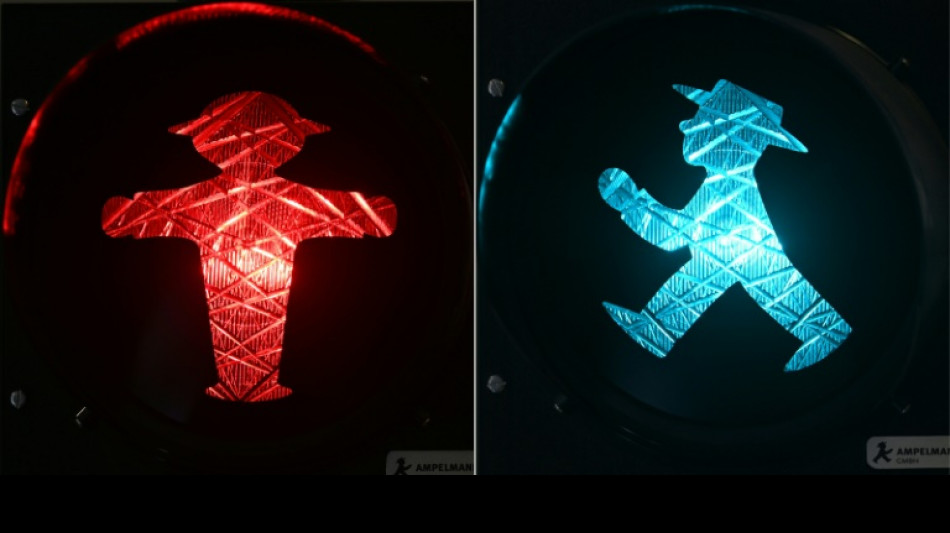
-
 Frail Pope Francis takes to popemobile to greet Easter crowd
Frail Pope Francis takes to popemobile to greet Easter crowd
-
Lewandowski injury confirmed in blow to Barca quadruple bid
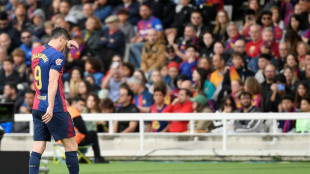
-
 Russia and Ukraine accuse each other of breaching Easter truce
Russia and Ukraine accuse each other of breaching Easter truce
-
Zimbabwe bowl Bangladesh out for 191 in first Test in Sylhet
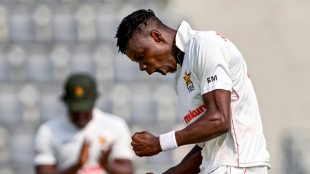
-
 Ukrainians voice scepticism on Easter truce
Ukrainians voice scepticism on Easter truce
-
Pope wishes 'Happy Easter' to faithful in appearance at St Peter's Square

-
 Sri Lanka police probe photo of Buddha tooth relic
Sri Lanka police probe photo of Buddha tooth relic
-
Home hero Wu wows Shanghai crowds by charging to China Open win
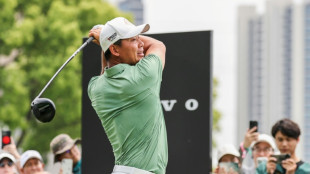
-
 Less Soviet, more inspiring: Kyrgyzstan seeks new anthem
Less Soviet, more inspiring: Kyrgyzstan seeks new anthem
-
Defending champion Kyren Wilson crashes out in first round of World Snooker Championship
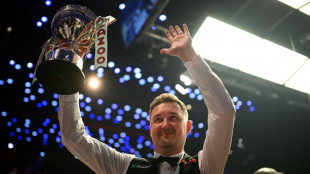
-
 NASA's oldest active astronaut returns to Earth on 70th birthday
NASA's oldest active astronaut returns to Earth on 70th birthday
-
Exec linked to Bangkok building collapse arrested

-
 Zelensky says Russian attacks ongoing despite Putin's Easter truce
Zelensky says Russian attacks ongoing despite Putin's Easter truce
-
Vaibhav Suryavanshi: the 14-year-old whose IPL dream came true
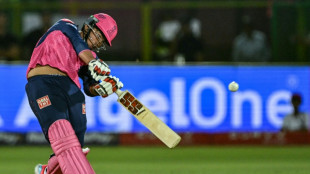
-
 Six drowning deaths as huge waves hit Australian coast
Six drowning deaths as huge waves hit Australian coast
-
Ukrainian soldiers' lovers kept waiting as war drags on

-
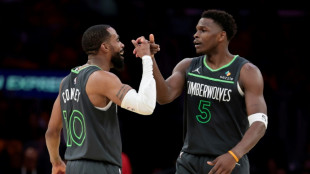 T'Wolves dominate Lakers, Nuggets edge Clippers as NBA playoffs start
T'Wolves dominate Lakers, Nuggets edge Clippers as NBA playoffs start
-
Taxes on super rich and tech giants stall under Trump

-
 Star Wars series 'Andor' back for final season
Star Wars series 'Andor' back for final season
-
Neighbours improvise first aid for wounded in besieged Sudan city

-
 Tariffs could lift Boeing and Airbus plane prices even higher
Tariffs could lift Boeing and Airbus plane prices even higher
-
Analysts warn US could be handing chip market to China

-
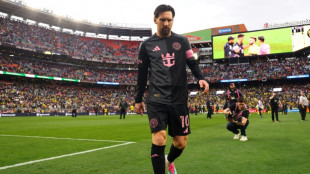 Unbeaten Miami edge Columbus in front of big MLS crowd in Cleveland
Unbeaten Miami edge Columbus in front of big MLS crowd in Cleveland
-
Social media helps fuel growing 'sex tourism' in Japan

-
 'Pandora's box': alarm bells in Indonesia over rising military role
'Pandora's box': alarm bells in Indonesia over rising military role
-
Alaalatoa hails 'hustling hard' Brumbies for rare Super Rugby clean sheet
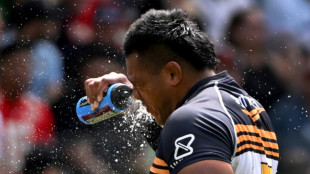
-
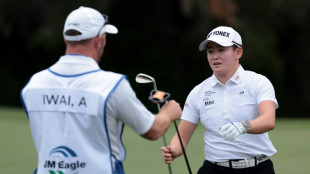 Trio share lead at tight LA Championship
Trio share lead at tight LA Championship
-
Sampdoria fighting relegation disaster as old heroes ride into town
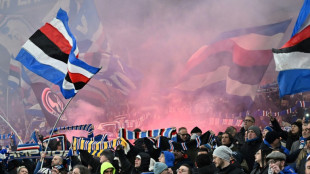
-
 Recovering pope expected to delight crowds at Easter Sunday mass
Recovering pope expected to delight crowds at Easter Sunday mass
-
Nuggets edge Clippers in NBA playoff overtime thriller, Knicks and Pacers win

-
 Force skipper clueless about extra-time rules in pulsating Super Rugby draw
Force skipper clueless about extra-time rules in pulsating Super Rugby draw
-
DEA MARIJUANA SCAM: As DEA Cannabis Program Implodes This 4/20, MMJ Stands Alone in Pursuit of Real Medicine
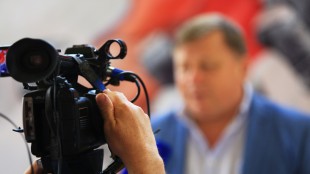
-
 Nuggets edge Clippers in NBA playoff overtime thriller, Pacers thump Bucks
Nuggets edge Clippers in NBA playoff overtime thriller, Pacers thump Bucks
-
Unbeaten Miami edge Columbus in front of big crowd in Cleveland

-
 Kim takes one-shot lead over Thomas, Novak at RBC Heritage
Kim takes one-shot lead over Thomas, Novak at RBC Heritage
-
Another round of anti-Trump protests hits US cities

-
 'So grateful' - Dodgers star Ohtani and wife welcome first child
'So grateful' - Dodgers star Ohtani and wife welcome first child
-
PSG maintain unbeaten Ligue 1 record, Marseille back up to second

-
 US, Iran report progress in nuclear talks, will meet again
US, Iran report progress in nuclear talks, will meet again
-
US Supreme Court intervenes to block Trump deportations

-
 Hamas armed wing says fate of US-Israeli captive unknown
Hamas armed wing says fate of US-Israeli captive unknown
-
Pacers thump Bucks to open NBA playoffs
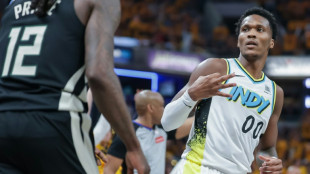
-
 Sabalenka reaches Stuttgart semis as Ostapenko extends Swiatek mastery
Sabalenka reaches Stuttgart semis as Ostapenko extends Swiatek mastery
-
Zelensky says Ukraine will observe Putin's Easter truce but claims violations

-
 'Fuming' Watkins fires Villa in bid to prove Emery wrong
'Fuming' Watkins fires Villa in bid to prove Emery wrong
-
DR Congo boat fire toll revised down to 33

-
 England thrash Scotland to set up France Grand Slam showdown
England thrash Scotland to set up France Grand Slam showdown
-
Verstappen's Red Bull 'comes alive' to claim record pole in Jeddah

-
 McTominay fires Napoli level with Inter as Conte fuels exit rumours
McTominay fires Napoli level with Inter as Conte fuels exit rumours
-
Rajasthan unleash Suryavanshi, 14, as youngest IPL player but lose thriller


How East Germany's 'traffic light man' became a beloved icon
As Germany readies to mark 35 years since the Berlin Wall fell, one symbol of the former communist East has become an icon of reunification, seen by millions every time they cross a street.
East Germany's "Ampelmann" or pedestrian "traffic light man" is now instantly recognisable thanks to his chunky outline and wide-brimmed hat.
He almost disappeared along with East Germany in the years after the Wall fell on November 9, 1989, when many other symbols of the German Democratic Republic (GDR) were swept away.
Its polluting Trabant cars were soon headed for the scrap-heap, threadbare state-run shops gave way to Western brands, and grey prefabricated tower blocks got new licks of paint.
The Ampelmann almost went the same way, said Markus Heckhausen, a businessman in his 60s from the western German city of Tuebingen.
He remembered seeing the traffic lights featuring the Ampelmann often lying on the side of the road in the early days of reunited Germany.
Despite being a "Wessi" -- the sometimes pejorative nickname for West Germans -- Heckhausen took up the cause of the Ampelmann and spotted a commercial opportunity.
- 'Modern, body-positive' -
He started collecting the chunky lights to turn them into indoor lamps, while simultaneously launching an appeal for the Ampelmann to be saved on the streets.
The campaign struck a chord with many East Germans who felt "they were losing their identity" as their country was practically subsumed into its Western neighbour, said Heckhausen.
Not only was the Ampelmann saved in the East, but he also became a rare symbol from the GDR to be adopted in parts of the West, including in the former western sectors of long-divided Berlin.
The design was created in 1961 by the state's "transport psychologist" Karl Peglau and became something of a star within East Germany, even popping up in cartoons.
"I had the feeling he was always there during my childhood," said 53-year-old Torsten Foeste, who was born in the GDR town of Greifswald but now lives in Berlin.
Fons Hickmann, a graphic designer and professor at Berlin University of the Arts, said the Ampelmann's enduring popularity is down to his figure's lovable "imperfection".
"The back leg is a little too long, the front one a little too short, the whole figure is quite bulky," he told AFP.
"One could say that it's a very modern, body-positive symbol," he quipped.
- Money-spinner -
Peglau's aim was to create a cute, eye-catching figure which would be readily noticed, especially by children and the elderly, at a time when road accidents were on the rise.
"I think in essence it's such an important idea, saying that road traffic doesn't only belong to cars, but to others too, including pedestrians," said Hickmann.
While still keeping pedestrians safe, the humble Ampelmann has become a big money-spinner too, with Heckhausen following up on the lamps with mugs, T-shirts, soft toys and even USB sticks.
Not that Foeste minds the very capitalist incarnation of his childhood memory that Heckhausen has created: "I say congratulations to him, it's a super idea!"
Heckhausen was even able to convince Peglau to work with him on the products until the latter died in 2009.
Today the Ampelmann business makes millions of euros a year and employs around 80 people, said Heckhausen.
Particularly in Berlin, Ampelmann stores have become something of an obligatory stop for many on the tourist trail.
In one, visitor Petra from the western city of Essen hailed the "chic" design, adding: "I've already bought some schnapps glasses and fridge magnets".
L.Harper--AMWN
